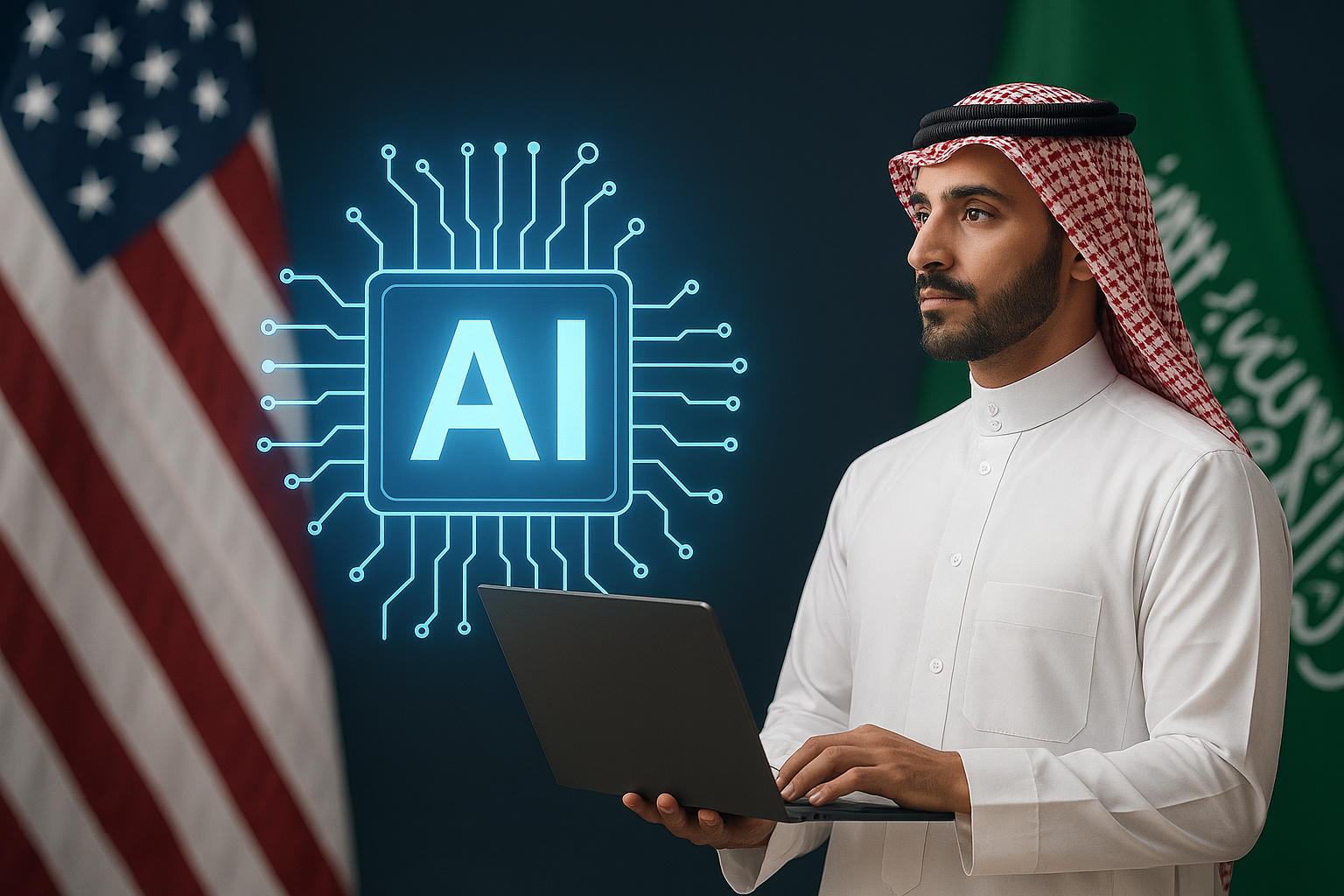At a time when artificial intelligence is reshaping global markets, Gulf sovereign wealth funds are zeroing in on America’s booming AI sector. At the Future Investment Initiative (FII) conference in Riyadh this week, Qatar’s finance minister confirmed that AI will form the core of the country’s projected U.S. investments — signaling a powerful alignment between petrodollar capital and Silicon Valley’s AI revolution. Saudi Arabia, too, has doubled down on technology partnerships, from AI infrastructure to data-center expansion, as the kingdom accelerates its diversification away from oil.
These developments come amid soaring AI demand across the corporate world. Major tech firms are upgrading growth forecasts as spending on AI hardware, cloud computing, and software surges — creating what many analysts describe as a “second internet moment” for investors.
The Gulf’s Strategic Pivot Toward AI
The Gulf states’ pivot toward AI marks a major shift in global capital allocation. Historically tied to energy and real estate, sovereign funds such as Qatar Investment Authority (QIA) and Saudi Arabia’s Public Investment Fund (PIF) are now positioning themselves as long-term backers of the digital economy. According to Reuters, Qatar’s finance minister emphasized that AI investment will form the backbone of its next phase of U.S. engagement — a clear signal that the region’s deep pockets are chasing tech-driven returns.
Saudi Arabia’s FII conference, often dubbed “Davos in the Desert,” served as the backdrop for major AI discussions between policymakers and CEOs from Microsoft, Nvidia, and OpenAI. The Gulf’s bet on AI isn’t just about diversification — it’s about influence. As U.S. tech firms seek global funding to scale AI infrastructure, Gulf nations see an opportunity to become indispensable partners in the world’s next industrial revolution.
Why This Matters for Investors
For investors, the message is clear: AI is no longer just a buzzword — it’s becoming a capital magnet. Gulf money has traditionally been patient, long-term, and strategic. When sovereign funds move in size, markets tend to follow.
The influx of Middle Eastern capital could accelerate the expansion of AI data centers, semiconductor demand, and cloud infrastructure — sectors already leading U.S. stock performance in 2025. Companies like Nvidia ($NVDA), Microsoft ($MSFT), and Amazon ($AMZN) are likely to remain beneficiaries of this trend, while emerging players in AI infrastructure and specialized chip design could see new funding inflows.
Data from McKinsey projects that AI could contribute up to $15.7 trillion to global GDP by 2030, with over 40% of that impact coming from efficiency gains and automation. Meanwhile, Goldman Sachs analysts estimate AI-related capital expenditure will grow by over 35% annually through 2027 — making it one of the fastest-growing investment categories in the world.
Future Trends to Watch
1. Sovereign Fund Partnerships: Expect more joint ventures between Gulf sovereign wealth funds and U.S. tech giants. PIF’s partnerships with SoftBank and Lucid Motors provide a roadmap for similar tie-ups in the AI sector.
2. AI Infrastructure Buildout: With massive data and energy requirements, AI’s backbone relies heavily on data centers and energy-efficient chips. Companies like AMD ($AMD), Broadcom ($AVGO), and Alphabet ($GOOGL) stand to gain as infrastructure spending accelerates.
3. Energy-AI Nexus: Gulf countries are uniquely positioned to bridge AI and energy. As AI training models consume more power, partnerships with energy-rich nations could shape the next wave of sustainable AI innovation, linking oil wealth to green tech funding.
4. Valuation Watch: While AI optimism continues to push valuations higher, investors should stay vigilant. A flood of capital can inflate prices beyond fundamentals. Focus on companies with clear earnings visibility, strong balance sheets, and real-world AI deployment — not just those chasing the narrative.
Key Investment Insight
The surge of Gulf investment into U.S. AI underscores a structural shift in where global capital is flowing — from fossil fuels to data and algorithms. For investors, this convergence of sovereign wealth and AI innovation represents both opportunity and caution. The upside lies in long-term exposure to AI infrastructure, chips, and software platforms driving productivity growth. The risk lies in overexuberance, where hype outpaces earnings.
Investors should consider a diversified approach: balancing exposure to established AI leaders with select infrastructure or semiconductor ETFs. Watching policy developments in both Washington and Riyadh will also be key, as geopolitical shifts could accelerate or disrupt these cross-border investment flows.
As AI continues to define the next decade of innovation, the Middle East’s growing role as financier and facilitator adds a new dimension to the story. The fusion of Gulf capital and U.S. technology may well become one of the most powerful investment narratives of this era — one that reshapes both global markets and geopolitical influence.
Stay ahead of the trends shaping tomorrow’s markets — follow MoneyNews.Today for daily investor insights and global market intelligence.





